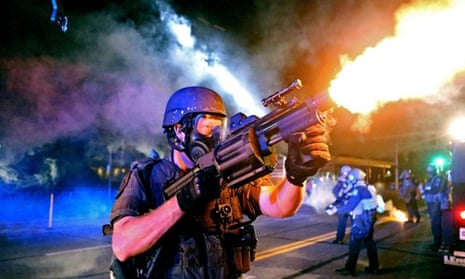The Pulitzer prize for public service, the highest accolade in US journalism announced on Monday, has been awarded to the Post and Courier, a South Carolina-based newspaper, for its investigation into the high number of female deaths from domestic violence in the state.
The award’s panel said the Post and Courier’s seven-part series, Till Death Do Us Part, “probed why South Carolina is among the deadliest states in the union for women and put the issue of what to do about it on the state’s agenda”. The series revealed failures by the state in stopping the violence, and inspired lawmakers there to enact reforms to the state’s domestic violence laws.
The Post and Courier wins Pulitzer Prize for domestic violence series http://t.co/jhOhWM12U5 pic.twitter.com/gItJGJ05zK
— The Post and Courier (@postandcourier) April 20, 2015
Last year, the Guardian and the Washington Post shared a Pulitzer for public service for their groundbreaking reports on the National Security Agency’s surveillance activities based on the leaks of Edward Snowden.
The award for breaking news photography went to the St Louis Post-Dispatch staff photographers for capturing “powerful images of the despair and anger” in Ferguson, Missouri, during the protests over the police killing of black teen Michael Brown.
The New York Times took three awards: for its feature photography of the Ebola outbreak and its international reporting on the same topic, and for its investigative reporting on political lobbying. It shared the investigative reporting prize with the Wall Street Journal, awarded for its reporting on Medicare data privacy.
“People who are good at pulling out what’s hidden by government and people of authority, I think that’s a theme of a lot of the winners,” said Mike Pride, the Pulitzer prize administrator, during the announcement ceremony.
I'm so proud of our awesome photography staff. #Ferguson #pulitzer2015 pic.twitter.com/tZIJe1PbJN
— Valerie Schremp Hahn (@valeriehahn) April 20, 2015
Carol D Leonnig of the Washington Post took the award for national reporting, “for her smart, persistent coverage of the secret service, its security lapses and the ways in which the agency neglected its vital task: the protection of the president of the United States”.
The Los Angeles Times won two awards. Diana Marcum won the Pulitzer for feature writing for her coverage of the California drought. Mary McNamara, the paper’s television critic and culture editor, won the prize for criticism.
The Seattle Times staff won in the breaking news category for its coverage of a landslide that killed 43 people “and the impressive follow-up reporting that explored whether the calamity could have been avoided”.
The 2015 Pulitzer prizes, announced on Monday, celebrate achievement in newspaper and online journalism, literature, nonfiction and musical composition. The prizes, announced at Columbia University in New York, have been given annually since 1917.
In the arts categories, the prize for fiction was won by Anthony Doerr for his second world war-era novel All the Light We Cannot See. The award for non-fiction went to journalist Elizabeth Kolbert for her book The Sixth Extinction: An Unnatural History. Stephen Adly Guirgis won the award for drama for Between Riverside and Crazy. The poetry award went to Gregory Pardlo for Digest.
The music prize was awarded to Julia Wolfe for Anthracite Fields, described as “a powerful oratorio for chorus and sextet evoking Pennsylvania coal-mining life around the turn of the 20th century”.

Comments (…)
Sign in or create your Guardian account to join the discussion